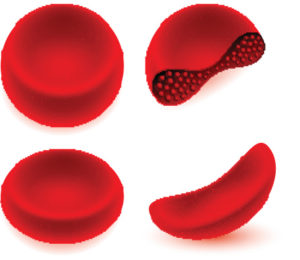Vaso-occlusive crisis—sickle cell pain related crisis—is the primary cause for hospital visits for sickle cell patients. Although the etiology of vaso-occlusion is not well understood, increased expression of P-selectin in endothelial cells and platelets contributes to the pathogenesis. Crizanlizumab, a monoclonal antibody directed toward P-selection, blocks it’s interaction with other cells and may reduce the risk of sickle cell pain crises. In a phase-2, multi-center, placebo-controlled trial, 198 patients were randomized in a 1:1:1 ratio to receive either high dose crizanlizumab (5.0 mg per kg of body weight), low dose crizanlizumab (2.5 mg per kg) or a placebo drug during the one year study. Patients with sickle cell disease who were taking high doses of crizanlizumab had a median rate of 1.63 pain crises compared to 2.98 among those taking the placebo (45.3% lower rate, P=0.01). Furthermore, the median time to first crisis was longer for patients taking high dose crizanlizumab, and these patients also had fewer adverse events. Crizanlizumab therapy improved patient outcomes regardless of concomitant hydroxyurea use or sickle cell disease genotype. Longer follow-up will be needed to assess the potential development of neutralizing antibodies to crizanlizumab.
Reference:

